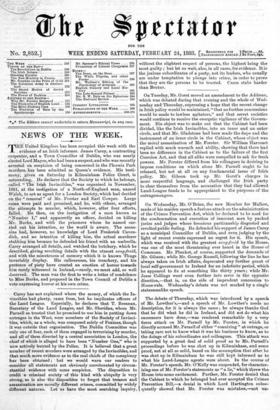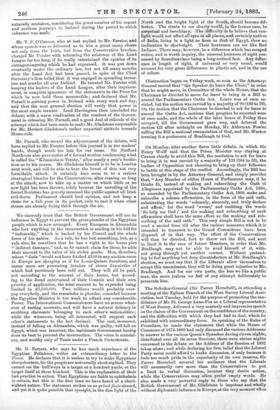The debate of Thursday, which was introduced by a speech
of Mr. Lowther's,—and a speech of Mr. Lowther's needs no description, for it is always the same ; he always thanks God that he did what he did in Ireland, and did not do what his successors have done,—was rendered remarkable by a very fierce attack on Mr. Parnell by Mr. Forster, in which he directly accused Mr. Parnell of either " conniving " at outrage, or taking care not to know what it was his business to know, as to the doings of his subordinates and colleagues. This attack was supported by a great deal of solid proof as to Mr. Parnell's proceedings before he was shut up in Kilmainham, and some proof, not at all so solid, based on the assumption that after he was shut np in Kilmainham he was still kept informed as to what his Land-League agents were aboUt. In the course of Mr. Forster's speech, Mr. O'Kelly was suspended, for character- ising one of Mr. Forster's statements as " a lie," which threw the House into some excitement. Further, Mr. Forster denied that the Cabinet to which he belonged had ever accepted the Crimes Prevention Bill,—a denial in which Lord Hartington subse- quently showed that Mr. Forster was mistaken,—not an-
naturally mistaken, considering the great number of his urgent and perilous journeys to Ireland during the period to which reference was made.



































